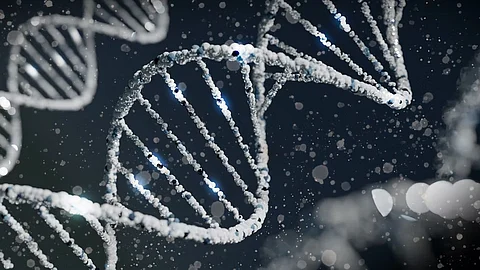Using mice where key methylation enzymes were deleted, researchers from the Reik lab in the Institute’s Epigenetics programme performed single-cell gene expression analysis at the start of organ development, which occurs at day 8.5 after fertilisation. Utilising the power of single-cell approaches the researchers were able to follow which cell types were affected, in terms of not being able to form in the mouse embryo, suggesting the mechanisms behind the effects seen at a whole-organism scale.
The research used genetically modified mice where two key groups of methylation enzymes were deleted: knock-out mice lines where DNA methyltransferases (DNMT 1, 3a and 3b) which introduce and maintain DNA methylation were individually deleted, and a system to investigate the effects of a combined deletion of all three TET enzymes (ten-eleven translocation (TET) methylcytosine dioxygenases) 1/2/3), which cause demethylation.


